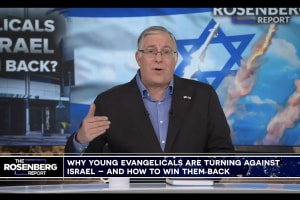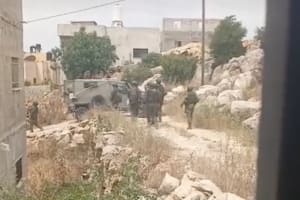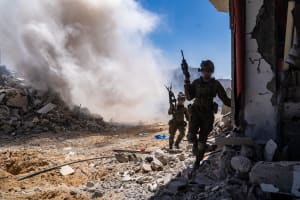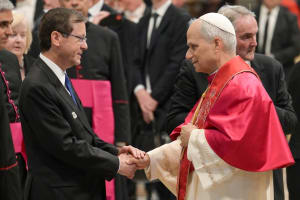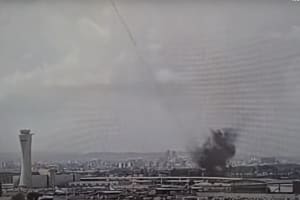Israel about to declare state of emergency over COVID spread - nearly 7,000 new diagnoses in one day
New closures to potentially affect airport, protests and synagogues; Orthodox “ready to revolt”

JERUSALEM — Residents are bracing for more severe restrictions to a national lockdown that began on Friday while the country teeters on the verge of declaring a state of emergency in light of a skyrocketing COVID-19 infection rate.
Prime Minister Benjamin Netanyahu is calling for an immediate tightening of the national shutdown.
“The prime minister will seek a decision on a broad general closure and a significant tightening of restrictions immediately, as well as the closure of extensive industries in the economy,” his office said in a statement.
If the cabinet approves a state of emergency, it can bypass the need for Knesset approval of new regulations.
The prime minister is expected to demand closing Ben-Gurion Airport to outgoing flights, shuttering synagogues and restricting protests and public gatherings.
This will likely go into effect before Yom Kippur, the holiest day on the Jewish calendar, which begins at sundown on Sunday.
Israel hit a record high on Tuesday with 6,923 new coronavirus infections. Hospitals have raised a “red flag” saying the healthcare system could collapse if the number of seriously ill patients continues to increase.
What is definitely collapsing, however, is the economy. With schools, restaurants, stores, hotels and gyms already closed, the government is now considering the complete closure of the private sector and the operation of vital businesses only.
Also collapsing is the public's confidence in the government's handling of the pandemic. A new pollby the Israel Democracy Institute (IDI) released today showed that only 27 percent trust Netanyahu's leadership in the coronavirus battle - down from 57 percent in April.
And, a majority of Israelis are pessimistic about Israel's prospects of economic recovery.
"The erosion of the public's optimism in Israel’s ability to recover from the crisis continues. For the first time, less than half of the Jews and less than a third of the Arab public are optimistic in this regard," according to the IDI.
The right to protest and the right to pray
Another two areas subject to anticipated harsher restrictions are houses of prayer and protests — both of which will likely spark a backlash. The topic is already drawing a hostile dividing line between religious and secular Israelis.Arye Deri, the leader of the ultra-Orthodox Shas party — a crucial member of Netanyahu’s coalition — has threatened to quit the government if synagogues are shut.
“I cannot understand why prayers are a no, but demonstrations are a yes,” he said. "A government that decides demonstrations can be held but prayers cannot is acting as a non-Jewish government.”
Netanyahu favored clamping down on protests: “You can go to the Western Wall only if you live within 1,000 meters, but to Balfour (Street, where weekly protests take place), you can come from around the country,” Netanyahu reportedly said. “This farce must end. This is an emergency and we must have one rule for both prayer and protests and all other gatherings. Otherwise, the public won’t listen to the rules and we will see the infection rate reach terrible levels.”
Opposition leader Yair Lapid said Netanyahu wants to cancel protests simply because they are aimed at him and have been growing in number, not for the spread of the virus.
“Netanyahu connects them only because it serves him,” Lapid said. “Religious and secular people will hate each other. He cultivates this hatred… so that we forget that the whole issue is not related to religious and secular people at all, but to the difference between open and closed places.
“People can demonstrate in open places,” he continued. “They also behave responsibly, wear masks, maintain social distance. People can also pray on holidays in open spaces according to the same rules.”
Under the current measure, synagogues are open but must limit the number of worshippers who can enter.
Coronavirus czar Ronni Gamzu told Radio Jerusalem that “restrictions at this point should be about everything, including demonstrations… There is no gathering that is not contagious... When you take off your mask and shout at demonstrations, or if in the heat of the demonstration it falls down, then it is clear what happens.”
This is Israel's second national lockdown this year following the first in March and April. The nation's borders have been shut since then.

Nicole Jansezian was the news editor and senior correspondent for ALL ISRAEL NEWS.



